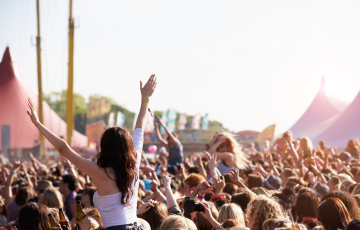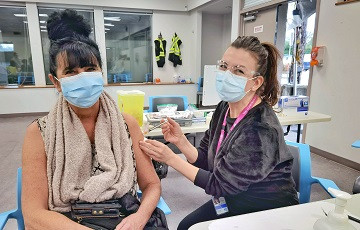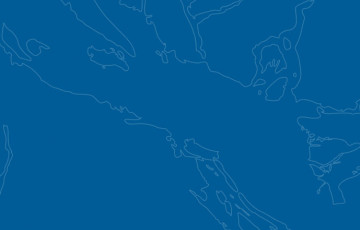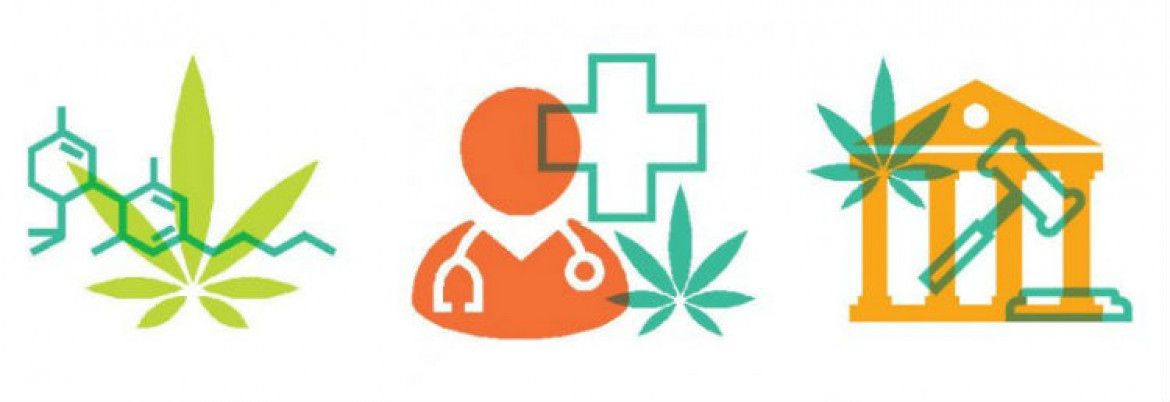Non-medical Cannabis Use
The use, purchase and possession of cannabis for non-medical purposes is legal for adults in Canada, beginning October 17, 2018.
I consume cannabis. What do I need to know when I come to an Island Health site?
It is very important that your health care team knows about your cannabis use, (non-medical and medically authorised) because it will help them to make informed clinical decisions about your care.
Check out this video, "A conversation about cannabis" for more information about what you need to know about cannabis use as a client or patient of Island Health.
Note: This video was completed in January 2020.
Topics covered in this video are below.
00:19 What do I need to consider about cannabis, when I come to Island Health?
01:14 Do I need to bring my medical authorization note with me?
01:36 What if I self-treat with cannabis without a medical authorization note?
02:10 What if I have medical authorization but I purchased my cannabis from a legal, butnon-medical source?
04:16 What if I don't tell my health team about the cannabis that I have, will they take it
away from me if they find it?
04:44 What if I have cannabis (medically authorized or non-medical cannabis) that is not in its original packaging?
06:25 What if I decide to store my cannabis securely while I am in hospital, and I want to
consume it via smoking?
08:35 What has Island Health done to educate my health team throughout this significant
change in legislation?
10:42 What if I am concerned about bringing up the topic of cannabis with my health
team?
11:34 What if I forget my cannabis at the care facility?
13:02 What if I live in a Long Term Care facility?
14:56 What should I do if I am going to have surgery?
What is cannabis?
Cannabis is a flowering plant that can be used for medical or non-medical purposes. The dried leaves, flowers and buds or pressed resin can be smoked, vaporized, applied as an oil or consumed in food or beverages.
Cannabis contains tetrahydrocannabinol (THC), a substance that can affect mood and feelings, as well as increase appetite.
Is cannabis safe?
Cannabis use is a personal choice, but comes with health risks. This includes cognitive, respiratory and reproductive problems. It is safest not to use cannabis.
Young people are particularly vulnerable to the health effects of cannabis, which is linked to health, educational and social problems.
Some people are more likely to develop problems from cannabis use, including people with a personal or family history of psychosis or substance use problems. Pregnant women should not use cannabis at all.
If you do consume cannabis, stay safer by following these steps:
- delay using cannabis until at least your late 20’s when the brain is fully mature
- choose lower-risk cannabis products – avoid high-potency and synthetic products
- choose safer ways to use cannabis – avoid smoking cannabis, inhaling deeply and holding your breath
- if you use cannabis, limit your use to lower your risks
- never use and then drive or operate other machinery
- don’t mix with alcohol or other drugs
- go slow with edibles – be patient, the effects of cannabis edibles are felt slowly and people may consume large doses and experience more severe impairment
- keep your cannabis products at home in a secure place, out of sight and reach of children and pets.
Is cannabis addictive?
Cannabis can be addictive. The younger people start using cannabis, and the more frequently it’s used, the greater the risk to develop a cannabis dependency.
Close to 1 in 10 adults who have ever used cannabis will develop a dependency to it. For people who start using cannabis as teens, that rises to 1 in 6.
If you or someone you care about is struggling with substance use disorder with cannabis or other drugs, help is available.
Are the health effects of cannabis different for teens?
Young people are particularly vulnerable to the health effects of cannabis, which is linked to health, educational and social problems.
Cannabis can change the way the brain grows and develops. Regular use of cannabis may affect brain development up to at least age 25.
The younger people begin to use cannabis, the greater the risk to develop a cannabis dependency.
What about medicinal cannabis?
Talk to your health care provider about using cannabis for health concerns.
What about cannabis edibles?
Commercial cannabis edibles likely will not be legal for another year, and are subject to the Public Health Act and the Food Premises Regulation.
Why are there restrictions on where I can smoke cannabis?
There is no safe level of second-hand smoke. Harmful particles from tobacco, cannabis and vaping can be carried up to seven metres in outdoor settings.
Island Health facilities and grounds are smoke-free. People can smoke substances outside of the grounds, in compliance with municipal and regional clean air bylaws. Check with your local government to learn about no-smoking/vaping bylaws in your area.
Is it legal to use cannabis and drive?
Never use and then drive or operate other machinery. Driving while impaired is illegal and can result in death or injury. For more information, see the Don’t Drive High website.
Can people use cannabis in health-care facilities (visitors, residents, staff)?
Island Health facilities and grounds are smoke-free. Smoking and/or vaping are not permitted in Island Health facilities or grounds.
Additional Resources
Substance Use & Addiction
Smoking & Tobacco
Get Cannabis Clarity - Government of BC
Take Care with Cannabis
For Adults
CAMH lower-risk cannabis use guidelines for professionals
CAMH lower-risk cannabis use guidelines for public
HeretoHelp: Safer cannabis use: Marijuana, hash, hash oil
For Parents and Teachers
Cannabis Use and Youth: A parent’s guide
How to Talk to Kids
Talking with teenagers about drugs
Le cannabis
For Mental Health
HeretoHelp: Cannabis and Mental Health
For Youth
Cannabis
Cannabis & You
Effects on Youth and the Developing Brain
For Expectant Mothers
Cannabis and Pregnancy: Obstetricians and Gynaecologists of Canada
For Health and Social Service providers
Cannabasics: Canadian Public Health Association
Cannabasics 2018 Fact Sheet
If you or someone you care about is struggling with substance use disorder with cannabis or other drugs, help is available.
24/7 Crisis line: 1-888-494-3888 vicrisis.ca
8-1-1 for non-emergency advice 24/7




